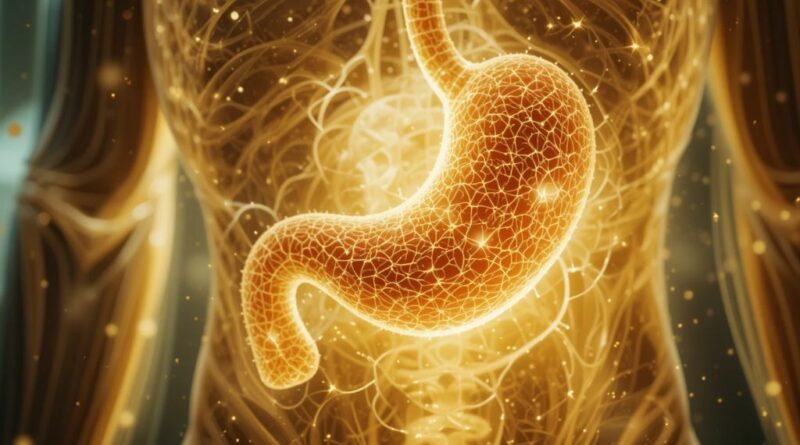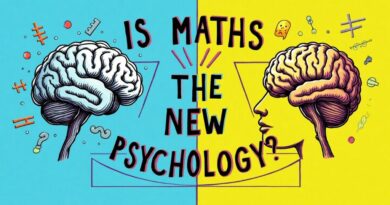How Your Gut Microbiome May Be Fuelling Social Anxiety
Revolutionary research reveals that the trillions of microbes living in our intestines might be the puppet masters behind our most profound social fears
Sarah Martinez had always struggled with social situations. The 28-year-old marketing executive would feel her heart racing before networking events, her palms would sweat during presentations, and she’d often find excuses to avoid office parties entirely. Like millions of others worldwide, Sarah lived with social anxiety disorder (SAD)—a condition that affects approximately 12% of adults at some point in their lives. But groundbreaking research published in the Proceedings of the National Academy of Sciences suggests that the root of her anxiety might not be solely in her mind, but in an unexpected place: her gut.
The Microbiome Revolution
The human gut houses an extraordinary ecosystem of approximately 100 trillion microorganisms—bacteria, viruses, fungi, and other microbes that collectively weigh about as much as your brain. This microscopic metropolis, known as the gut microbiome, has emerged as one of the most fascinating frontiers in modern medicine. Evidence has unveiled the bidirectional communication between the gut microbiome and the central nervous system, referred to as the “microbiota–gut–brain axis“.
Scientists have long recognised that our gut and brain are intimately connected through what’s known as the gut-brain axis. This sophisticated communication network involves the vagus nerve, immune system, and various chemical messengers that allow our intestinal inhabitants to influence our thoughts, emotions, and behaviours. What researchers are now discovering is that this connection may be far more profound than previously imagined—particularly when it comes to social anxiety.
The Anxiety-Inducing Microbes
In a remarkable study that sounds more like science fiction than scientific fact, researchers at the University of Calgary made a startling discovery. Mice that received SAD patient microbiota had a specific heightened sensitivity to social fear without affecting other behaviours tested. The implications are staggering: the researchers literally transplanted anxiety.
The study involved collecting faecal samples from individuals diagnosed with social anxiety disorder and healthy control subjects. These samples were then transplanted into germ-free mice—laboratory animals raised in sterile conditions without any gut microbes of their own. The results were both fascinating and unsettling. The mice that received microbiota from people with social anxiety disorder began exhibiting increased social fear behaviours, whilst those that received microbiota from healthy individuals showed normal social responses.
Dr. Nicole Ritz, the lead researcher, explained that this finding suggests our gut microbes may be active participants in shaping our social behaviour rather than mere bystanders. The research provides compelling evidence that the gut microbiome doesn’t just respond to anxiety—it may actually contribute to causing it.
The Chemical Messengers of Fear
But how exactly do these microscopic organisms influence our social behaviour? The answer lies in the complex biochemical conversation happening between our gut and brain every moment of every day. Gut microbiota alters nutrient availability and thus influences the release of biologically active peptides from enteroendocrine cells, which in turn can affect the gut-brain axis.
The gut microbiome produces and influences the production of numerous neurotransmitters and hormones that directly impact mood and behaviour. These include:
Serotonin: Often called the “happiness hormone,” approximately 90% of the body’s serotonin is produced in the gut. Certain gut bacteria can influence serotonin production, potentially affecting mood regulation and social confidence.
GABA (Gamma-Aminobutyric Acid): This primary inhibitory neurotransmitter helps calm the nervous system. Some beneficial bacteria, particularly Lactobacillus species, can produce GABA, potentially reducing anxiety levels.
Cortisol: The stress hormone cortisol can be influenced by gut microbe activity, affecting our fight-or-flight response in social situations.
Short-Chain Fatty Acids (SCFAs): These metabolites produced by gut bacteria can cross the blood-brain barrier and influence brain function, including areas associated with emotional regulation.
The Inflammatory Connection
Recent research has also highlighted the role of inflammation in the gut-brain-anxiety connection. The gut microbiota shows compositional alterations in a variety of psychiatric disorders including depression, generalised anxiety disorder (GAD), autism spectrum disorder (ASD) and schizophrenia, suggesting that microbial imbalances may trigger inflammatory responses that affect mental health.
When the gut microbiome is disrupted—a condition known as dysbiosis—it can lead to increased intestinal permeability, often referred to as “leaky gut.” This allows bacterial toxins and inflammatory compounds to enter the bloodstream and potentially reach the brain, where they may contribute to anxiety and other mood disorders.
The immune system, which is heavily concentrated in the gut, plays a crucial role in this process. Approximately 70% of our immune system resides in the gut-associated lymphoid tissue (GALT), making the intestinal environment a critical battleground for maintaining both physical and mental health.
Modern Life’s Assault on Our Microbial Allies
Understanding the gut-anxiety connection becomes even more relevant when we consider how modern lifestyle factors are systematically dismantling our beneficial gut bacteria. The typical Western diet, high in processed foods and low in fibre, creates an environment that favours harmful bacteria whilst starving beneficial ones. The widespread use of antibiotics, whilst life-saving in many situations, can devastate gut microbial diversity, sometimes taking months or years to recover.
Chronic stress, ironically, can also disrupt the gut microbiome, creating a vicious cycle where stress damages the gut bacteria that help regulate stress responses. The gut–brain axis, a bidirectional communication pathway, permits the central nervous system (CNS) to exert influence over gastrointestinal function in response to stress, while the gut microbiota regulates the CNS via immune, neuroendocrine, and vagal pathways.
Other factors that can negatively impact the gut microbiome include:
- Artificial sweeteners: Studies suggest these may alter gut bacteria composition
- Excessive alcohol consumption: Can promote harmful bacterial overgrowth
- Sedentary lifestyle: Physical activity promotes microbial diversity
- Poor sleep: Disrupts the gut microbiome’s natural rhythms
- Environmental toxins: Pesticides and chemicals can harm beneficial bacteria
The Promising Path Forward
Whilst the research revealing the gut’s role in social anxiety might initially seem alarming, it actually opens up exciting new avenues for treatment. Traditional approaches to social anxiety disorder, such as cognitive behavioural therapy and medication, remain important tools. However, understanding the microbial component suggests that addressing gut health could provide additional therapeutic benefits.
Probiotic Interventions: Specific strains of beneficial bacteria, particularly Lactobacillus helveticus and Bifidobacterium longum, have shown promise in reducing anxiety-like behaviours in both animal studies and human trials. These “psychobiotics” represent a new frontier in mental health treatment.
Dietary Modifications: Consuming a diet rich in prebiotic fibres (found in foods like onions, garlic, bananas, and oats) can help nourish beneficial gut bacteria. The Mediterranean diet, with its emphasis on vegetables, fruits, whole grains, and fermented foods, has been associated with better mental health outcomes.
Fermented Foods: Regular consumption of fermented foods like kefir, kimchi, sauerkraut, and yoghurt can help introduce beneficial bacteria to the gut. These traditional foods have been consumed by humans for thousands of years and may help restore microbial balance.
The Future of Anxiety Treatment
The discovery that gut microbes can influence social anxiety represents a paradigm shift in how we understand and treat mental health disorders. Study reveals that gut microbiota from individuals with social anxiety disorder (SAD) can induce social fear behaviors in mice, suggesting a causal role of gut microbes in modulating behaviors relevant to SAD.
This research suggests that future treatments for social anxiety might include:
- Personalised microbiome analysis: Testing individual gut bacteria profiles to identify specific imbalances
- Targeted probiotic therapy: Using specific bacterial strains tailored to individual needs
- Microbiome-focused dietary interventions: Customised nutrition plans to support beneficial bacteria
- Combination therapies: Integrating gut health approaches with traditional psychological and pharmaceutical treatments
A New Perspective on Mental Health
The gut-brain-anxiety connection challenges the traditional view that mental health disorders are purely psychological or neurological conditions. Instead, it suggests that our mental well-being is influenced by the complex ecosystem of microorganisms living within us. A balanced gut microbiome is essential for regular brain activities and emotional responses.
This holistic understanding doesn’t diminish the importance of psychological factors in social anxiety or suggest that it’s simply a matter of eating the right foods. Rather, it reveals that mental health is influenced by a complex interplay of psychological, neurological, immunological, and microbial factors.
For individuals like Sarah, this research offers both hope and practical options. By addressing gut health alongside traditional anxiety treatments, people with social anxiety disorder may find additional tools to manage their symptoms and improve their quality of life.
The Microbiome-Mental Health Revolution
As we continue to unravel the mysteries of the gut-brain connection, one thing becomes increasingly clear: the trillions of microorganisms living within us are not passive residents but active participants in our mental and emotional lives. The realisation that our gut bacteria can influence our social fears opens up new possibilities for understanding and treating anxiety disorders.
The journey from recognising correlations to understanding causation in gut-brain research has been remarkable. What started as observations about the connection between digestive health and mood has evolved into sophisticated research demonstrating that specific microbes can literally transfer behavioural traits from one organism to another.
This research also highlights the importance of viewing mental health through a systems-biology lens, recognising that our minds don’t exist in isolation but are influenced by our entire biological ecosystem. The gut microbiome represents just one piece of this complex puzzle, but it’s a piece that offers tangible, actionable approaches to improving mental health.
As we move forward, the integration of microbiome science with traditional mental health care promises to provide more comprehensive and effective treatments for social anxiety disorder and other psychiatric conditions. The tiny inhabitants of our gut may hold some of the biggest keys to unlocking better mental health for millions of people worldwide.
For those struggling with social anxiety, the message is both profound and practical: taking care of your gut health isn’t just about digestion—it might be one of the most important things you can do for your mental well-being. The connection between our gut and our social fears reminds us that in the intricate network of human health, everything is connected, and sometimes the solutions to our most complex problems come from the most unexpected places.
This article is based on peer-reviewed scientific research and is intended for informational purposes. Individuals with social anxiety disorder should consult with healthcare professionals for personalised treatment advice.
We’d love your questions or comments on today’s topic!
For more articles like this one, click here.
Thought for the day:
“Pray to God that your attachment to such transitory things as wealth, name, and creature comforts may become less and less every day.” Ramakrishna



